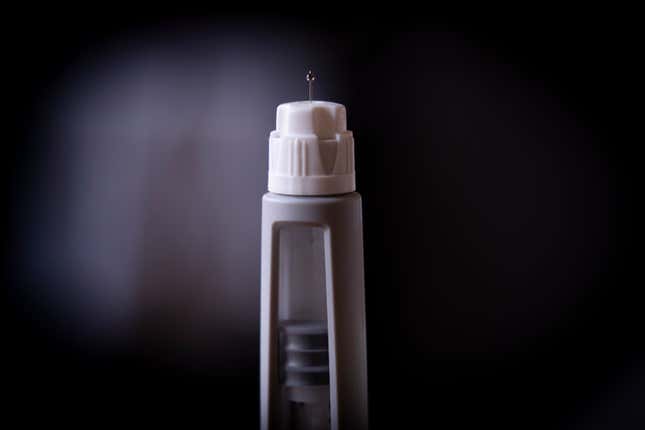
Zealand Pharma’s stock initially jumped 23% early Friday, after the company announced topline results of an early stage clinical trial of its Ozempic alternative. The gain has since slid to about 17%.
The Danish pharmaceutical company said late Thursday night that its experimental weight loss drug petrelintide demonstrated similar weight loss to Ozempic and other GLP-1s drugs with less side effects in a small phase 1 trial.
GLP-1s are a class of diabetes and obesity medications that mimic a hormone that regulates blood sugar and suppresses appetite. Demand for these medications have turned Ozempic maker Novo Nordisk and Eli Lilly, the producer of Mounjaro and Zepbound, into the largest pharma companies in the world.
Morgan Stanley analysts anticipate the global market for GLP-1s will reach $105 billion by 2030.
Several companies are now racing to disrupt the weight loss drug duopoly dominated by Novo Nordisk and Eli Lilly.
Zealand’s petrelintide works different from Ozempic and other GLP-1s drugs since it doesn’t mimic the hormone glucagon-like peptide-1. Instead, it is long-acting amylin analog. It works by mimicking a hormone that is co-secreted with insulin in the pancreas that increases satiety.
Zealand said that patients taking a high dose of petrelintide over 16 weeks lost an average 8.6% of their weight. For comparison, a clinical trial of Novo Nordisk’s Wegovy found that it helped users lose about 15% of their body weight over 68 weeks.
Zealand is pitching petrelinde as an alternative for patients who can’t tolerate GLP-1 treatments, which can include side effects like nauseau, vomiting, diarrhea, and abdominal pain.
According to Zealand, there were no serious or severe adverse events during the study and only one out 48 participants dropped out of the trial due to side effects.
“These results support our conviction that petrelintide is very well tolerated and can potentially play an important role as an alternative to incretin-based therapies for the management of overweight and obesity,” said Zealand chief medical officer David Kendall in a press release.


